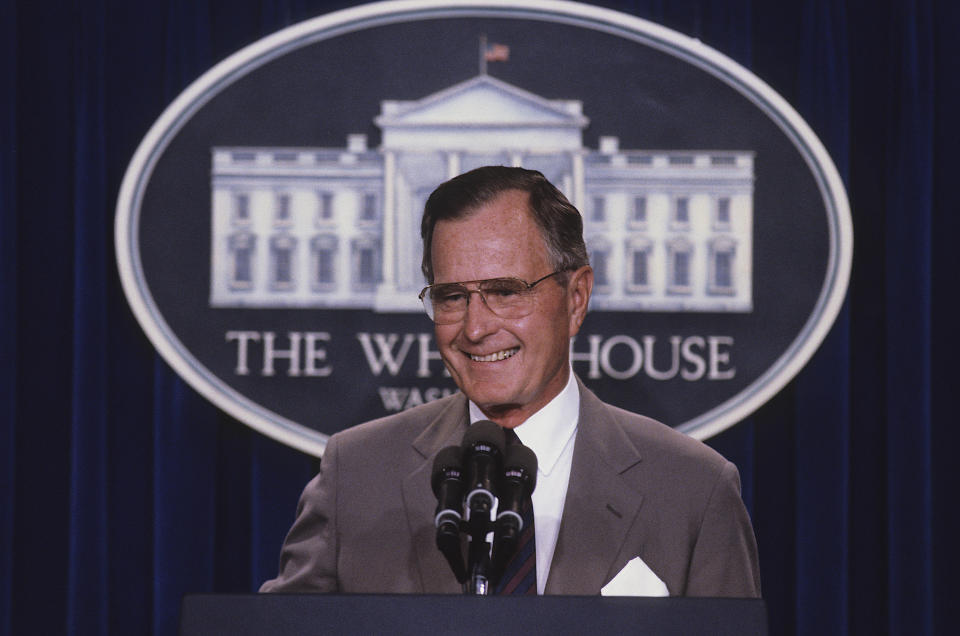Former President George H.W. Bush's tortured relationship with economics
The late President George Herbert Walker Bush was an expert in and sometimes seemed more comfortable with foreign affairs rather than domestic policies — particularly the markets and economics. In fact, it was the weak economy which likely cost him the 1992 presidential election where he lost to Bill Clinton.
Clinton based his campaign on the catchphrase “It’s the economy stupid,” which originally was an internal reminder for campaign workers created by Clinton strategist James Carville, but along with Carville’s other two messages — “Don’t forget health care” and “Change vs. more of the same thing” —it became public facing and key to Clinton’s victory.
A tepid economy was also critical.

In March 1991, immediately before the invasion of Iraq, 90% of Americans polled approved of Bush’s job performance. By August 1992, his approval rating fell to 64% as Americans seemingly blamed the president for the recession, which ironically had already ended.
But the recovery was anemic. And Bush later blamed then Federal Reserve Chairman Alan Greenspan for not lowering rates aggressively enough to pull the economy out of recession fast enough.
“I think that if the interest rates had been lowered more dramatically that I would have been re-elected president because the [economic] recovery that we were in would have been more visible,” Bush told interviewer David Frost. “I reappointed him, and he disappointed me.”
Bush was already famous for grappling with economics before he became president. In 1980 while running against Ronald Reagan for the GOP presidential nomination, Bush criticized Reagan’s supply-side economics policies as “voodoo economics.” Later of course, Bush would become Reagan’s vice president.
And later, when running for president, Bush became famous for the line: “Read my lips: no new taxes,” and then later changed his mind and raised some taxes.
Then there was the story — later debunked — about how the patrician Bush was amazed to see a supermarket check-out scanner in action during the 1992 campaign. It turned out that the technology he was looking at was brand new and he wasn’t particularly amazed. But it fit the narrative of Bush being an out of touch rich guy who didn’t care enough about the recession and no doubt some small damage was done.
—
Andy Serwer is editor-in-chief of Yahoo Finance. Follow him on Twitter @serwer
Read more:

 Yahoo Finance
Yahoo Finance 